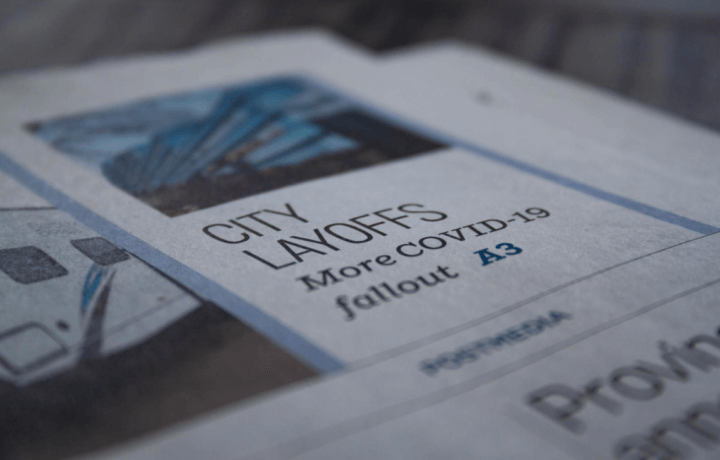As layoffs for contractors, contract awards, and hiring needs continue in the defense industry, cybersecurity remains a mounting concern. The 2021 National Defense Authorization Act (NDAA) has created a new cybersecurity position: National Cyber Director. The position is a principal advisor role in the executive office to the president.
“They would be the person that is coordinating defensive cyber policy to protect the country from cyber incidents of significant consequence… you really need somebody at the top and helping to coordinate that to begin with and that has both policy and budgetary authority to reach across the government to see where the cyber vulnerabilities exist,” said Jim Langevin, chairman of the House Armed Services Emerging Threats and Capabilities Subcommittee.
The role of the director is to advise the White House on cybersecurity strategy and policy. Once the position is in effect, and the individual has been named, two deputies will also be needed. One will oversee strategy, capabilities, and budgets, and the other deputy will oversee plans and operations.
Layoffs Impacting the Defense Industry
| Raytheon | Raytheon’s CEO Greg Hayes has stated that the effects of COVID-19 have been harder on Raytheon Technologies Corp than originally projected. Raytheon cut about 8,000 jobs from its commercial aviation business.
“During the quarter, we continued to deliver good performance in our defense business, while we saw challenges in commercial aerospace as expected,” Hayes said in a statement. “Looking ahead, we expect the pressures in commercial aerospace to persist as OEM production levels and aftermarket activity remain low. As a result, we are taking difficult but necessary actions to strengthen the business, including achieving the previously announced cost and cash savings this year. At the same time, we continue to deliver cost synergies from the Rockwell Collins acquisition and the Raytheon merger.” |
|---|---|
| Spirit AeroSystems | Between COVID-19’s impact on the airline industry and the grounding of the 737 Max, Spirit AeroSystems continues to struggle. While some employees have already gone down the voluntary layoff path, another 450 employees are expected to be laid off at the Wichita, KS location. This is the third time Spirit has had to reduce 737 Max production this year. |
| USCIS | Despite earlier warnings of an August 3rd furlough of its 13,000 employees, Congress has provided the agency with $1.2 billion emergency funding to keep the doors open.
“Recent assurances from Congress, and an uptick in application and petition receipts, have allowed USCIS senior leadership the flexibility to responsibly delay the start date of the administrative furlough of approximately 13,400 USCIS employees until Aug. 30,” agency spokeswoman Jessica Collins said. |
While some areas continue to be hard hit, Rhode Island’s Governor Gina Raimondo is planning on a $45 million initiative to infuse life back into the Rhode Island workforce. With Raimando’s Back to Work program, the governor is teaming up with companies like Microsoft, Raytheon, and Infosys and the the federal CARES Act money to support re-training and career counseling for the Rhode Island workforce. “Too many people are being left out,” Raimondo said in a Zoom news conference Tuesday with leaders in tech, health care, aeronautics and defense. The partnership organizations will also offer some provisional employment options to some participants in the accelerated training programs.
Hiring impacting the Defense Industry
| BAE Systems | While COVID-19 set back BAE Systems‘ plans for a ribbon cutting at the new facility in Cummings Research Park in Huntsville, AL, the mission for the company was not thwarted. Joe Wasley, Director and site executive of Huntsville Business Center for BAE Systems describes the hiring for the 83,000 square foot facility as “full steam ahead.” With tax incentive agreements with the cities of Huntsville and Madison and the state of Alabama, BAE Systems has plans to hire 200 employees by the end of 2021, with 100 of them hired by the end of 2020. The open seating style for the facility promotes flexible work schedules and a better work/life balance for employees. |
|---|
Opportunity to Watch
As artificial intelligence takes off in the Navy, some employers are ones to watch. Leidos has designed and built DARPA’s fully automated robotic warships. The organization has successfully built and tested the technology, and Leidos success has led to follow on work for their Sea Hunter-class warship. Lockheed Martin, Boeing, Huntington Ingalls, and General Dynamics are all contenders with robotic submarines and remote-controlled warships. However, it’s L3Harris who was just awarded on July 13 for a $35 million contract to develop the prototype for a Medium Unmanned Surface Vehicle (MUSV). The contract with L3Harris allows for an additional eight MUSVs after the first is successfully built. L3Harris slates December 2022 as the goal for its first MUSV delivery. It’s clear that while the U.S. seems to be in an AI race with other countries, its defense contractors are also in a race of sorts with one another. Competition is a great impetus for innovation.


